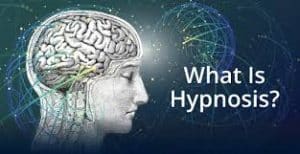When most people think of hypnosis they think of stage shows or television shows. The hypnotist in those shows is usually very good and entertaining.
When people think of hypnotherapy they tend to think of it as the same as hypnosis. Whilst hypnosis can be used for entertainment it can also be used for therapy, hence the word hypnotherapy.
Go to a dozen hypnotherapists and you will get a dozen different explanations of what hypnosis is. My definition is that hypnosis is a state of acceptance and focus that causes a change of state. We all spend our lives in and out of hypnotic trance. In fact we spend at least 70 to 80 percent of our lives in a hypnotic trance!
The easiest way I know to be hypnotised is to watch TV. You know when you are watching your favourite show, the stuff around you becomes some of the background and you don’t really pay attention to it. TV knows all about this and that is why they change the tone of the adverts. They know you are in a light trance and when you are in a light trance you are more accepting.
So why use hypnosis for therapy, especially mental therapy? You have two minds, the conscious and the unconscious mind. The conscious mind is the part that questions and is less powerful than the unconscious mind. The unconscious mind is the most powerful part of the body and it is there that your programming lies. The unconscious mind is like a five year old and will accept suggestions.
Hypnosis allows us to move the conscious mind, the questioning part, to one side and then to give suggestions directly to the unconscious mind. This is why hypnosis can be used very quickly and effectively to deal with things such as quit smoking, anxiety, stress, depression, PTSD, phobias, pain and many other things.
If you are suffering from the above why not consider hypnosis? As I have said it is quick, effective and you don’t have to restore to drugs.
